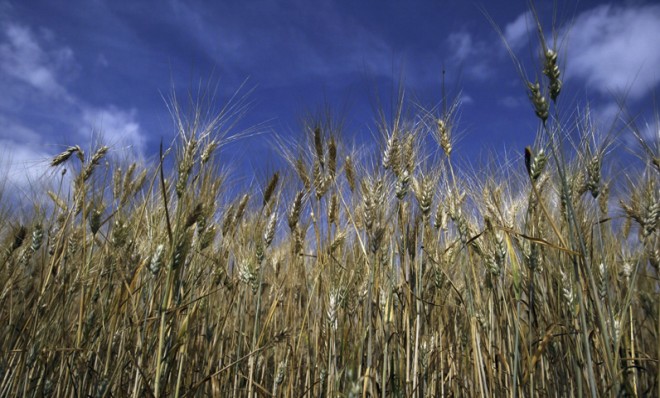Why genetically modified wheat is bad for the U.S. economy
A farmer in Oregon found something unexpected on his farm. Now America's $8.1 billion wheat business is at risk

A free daily email with the biggest news stories of the day – and the best features from TheWeek.com
You are now subscribed
Your newsletter sign-up was successful
A farmer in Oregon was puzzled when some wheat that had sprouted on his property wouldn't die after being sprayed with Roundup. After testing, the mystery was solved: The wheat was genetically modified by Monsanto, the same agri-giant that produces Roundup.
The discovery could cost the United States a significant part of its $8.1 billion in wheat exports. Officials from the Department of Agriculture are looking into whether modified wheat — which was tested in 16 states by Monsanto from 1998 to 2005 — has found its way into the food supply.
Officially, the FDA has declared genetically modified wheat crops safe for consumption. But that hasn't stopped them from being controversial. Concerns over the health and environmental effects of genetically modified crops have caused Michael Pollan acolytes to fight their spread into America's supermarkets.
The Week
Escape your echo chamber. Get the facts behind the news, plus analysis from multiple perspectives.

Sign up for The Week's Free Newsletters
From our morning news briefing to a weekly Good News Newsletter, get the best of The Week delivered directly to your inbox.
From our morning news briefing to a weekly Good News Newsletter, get the best of The Week delivered directly to your inbox.
And for America's export economy, it doesn't matter whether or not the FDA thinks modified crops are safe, because many U.S. trading partners don't.
There have already been casualties. Japan, which, along with Mexico, buys the bulk of American wheat, has canceled a tender offer to buy American white wheat.
"I won't be surprised if other countries start cancelling or reducing their purchases of U.S. wheat, particularly Asian countries, putting pressure on wheat demand," Joyce Liu, an investment analyst in Singapore, told Reuters.
The E.U. is planning to test incoming shipments of wheat from the United States and block any that contained genetically modified crops. Consumers in Europe are far more resistant to the idea of genetically modified crops than Americans, noted Michael Birnbaum at The Washington Post, with GMOs covering only 1 percent of E.U. farmland.
A free daily email with the biggest news stories of the day – and the best features from TheWeek.com
In the United States, crops grown primarily as animal feed are mostly genetically modified, including corn (88 percent) and soybeans (93 percent). Genetically modified wheat, however, isn't allowed in the United States or anywhere else in the world.
Keith Wagstaff is a staff writer at TheWeek.com covering politics and current events. He has previously written for such publications as TIME, Details, VICE, and the Village Voice.
-
 Quiz of The Week: 7 – 13 February
Quiz of The Week: 7 – 13 FebruaryQuiz Have you been paying attention to The Week’s news?
-
 Nordic combined: the Winter Olympics sport that bars women
Nordic combined: the Winter Olympics sport that bars womenIn The Spotlight Female athletes excluded from participation in demanding double-discipline events at Milano-Cortina
-
 Samurai: a ‘blockbuster’ display of Japanese heritage
Samurai: a ‘blockbuster’ display of Japanese heritageThe Week Recommends British Museum show offers a ‘scintillating journey’ through ‘a world of gore, power and artistic beauty’